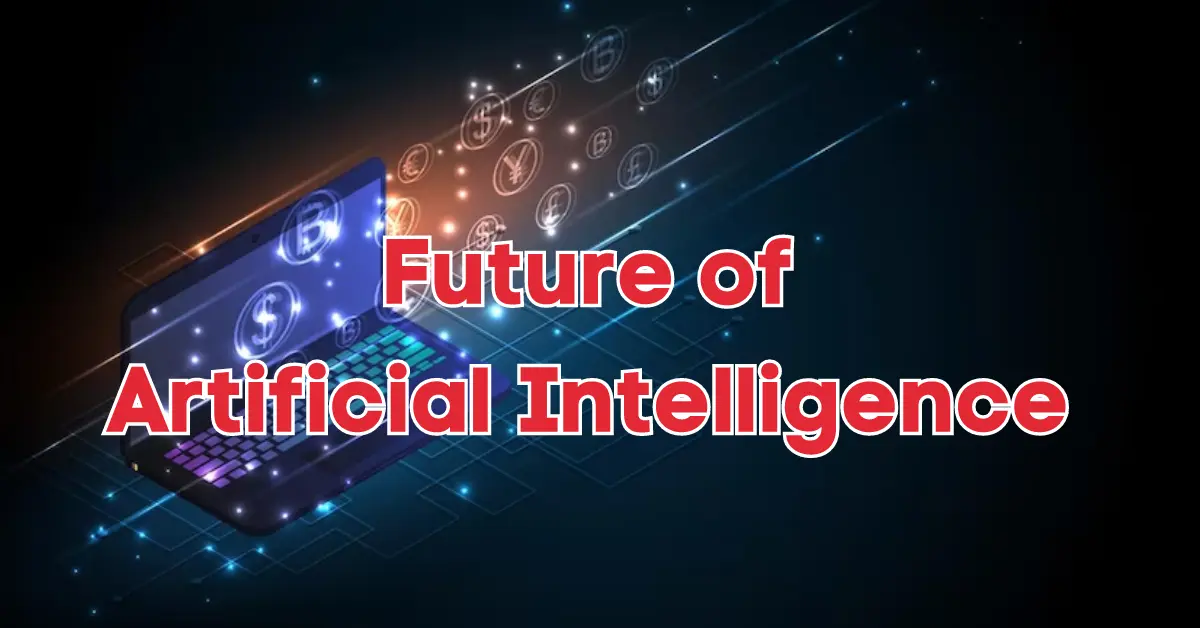Find out about the exciting future of Artificial Intelligence (AI) and how it will change many businesses. This article looks at the most recent developments, and possible uses and explains some of the most common questions about the future of artificial intelligence.
Introduction
AI has come a long way since it was first created, and it has a lot of potential to change the world as we know it in the future. AI is making changes in many different industries because it is improving so quickly. It is changing how things are done and making it possible to develop new solutions. In this article, we look at the future of Artificial Intelligence (AI), including its potential, uses, and answers to some of the most popular questions about this cutting-edge technology.
The Future of Artificial Intelligence- AI
The future of Artificial Intelligence (AI) is exciting and full of possibilities. As technology keeps getting better at a rate that has never been seen before, AI is likely to become an essential part of our everyday lives. Here are a few important places where the future of AI has a lot of promise:
Rise of AI in Everyday Life
AI is already part of our daily lives, and we often don’t even notice it. AI algorithms are constantly learning and changing to improve user experiences. This is true for everything from virtual assistants like Siri and Alexa to personalized advice on streaming platforms. AI’s future lies in making these exchanges even more accessible and more natural.
1.AI and Job Market Disruption
The widespread adoption of AI inevitably raises concerns about job displacement. While AI may automate specific tasks, it also creates new job opportunities. As AI takes over repetitive and mundane tasks, humans can focus on higher-level skills that require creativity, critical thinking, and emotional intelligence. Adapting to this changing landscape will be crucial for professionals across industries.
2.AI in Healthcare

AI can change how patients are cared for and how well medical treatments work. AI can study a vast amount of medical data by using advanced machine learning algorithms. This lets AI find diseases early, make personalized treatment plans, and do predictive analytics. From radiology to genomics, AI-driven solutions could change how diagnoses are made and how precise treatment is done.
3.AI in Transportation and Mobility

The future of AI lies in making cars that can drive themselves and get around our roads without any problems. AI algorithms can use data from sensors, cameras, and other sources to make decisions in a split second. This makes streets safer and cuts down on crashes. With more progress, self-driving cars could become commonplace and change how we get around and move things.
4. Education: Personalized Learning Experiences
Educational tools that use AI could change the way people learn in the past. Using adaptive algorithms, AI can tailor learning experiences to each person’s wants and preferences. Intelligent tutoring systems, virtual classrooms, and innovative tools for delivering information can change education by making it more accessible, engaging, and valuable.
5.AI in Finance and Banking
The banking sector stands to gain a lot from AI’s progress in the future. Algorithms powered by AI can look at a massive amount of financial data in real time, find patterns, and make intelligent business decisions based on what they see. Also, AI-based fraud detection systems can improve security by keeping private financial information safe and stopping fraud.
6.AI in Entertainment and Gaming
The future of AI in the entertainment business is exciting. Virtual reality (VR) and augmented reality (AR), both powered by AI, can give people more engaging experiences than ever before. AI-powered innovations promise to blur the lines between the virtual and real worlds, making interactive stories and realistic games possible and opening up new ways to have fun.
7.AI and Cybersecurity

With the increasing reliance on AI systems, the need for robust cybersecurity measures becomes paramount. As AI becomes more advanced, so do potential threats. Securing AI systems against hacking, data breaches, and malicious manipulation will be critical for protecting sensitive information and maintaining public trust.
8.AI and Automation
Automation is one of the primary applications of AI. As AI technologies advance, the future will witness increased automation across industries. Repetitive tasks in manufacturing, customer support, and data analysis can be efficiently handled by AI systems, freeing up human resources for more complex and creative endeavors.
Conclusion
The future of artificial intelligence (AI) has a lot of potential to change the way we live, work, and connect with the rest of the world. From Healthcare to transportation, and entertainment education, AI-powered solutions are set to change what’s possible and drive innovation. However, as we move forward, we must deal with ethical concerns, encourage people and AI to work together, and find the right way to create AI responsibly. AI has a bright future, and if we use it to its fullest, we can make a future that is both technologically advanced and focused on people.
FAQs
As the future of AI becomes more explicit, it’s normal to have questions about its effects and repercussions. Here are some questions that people often ask, along with their answers, to help you understand the topic better:
Q1: What is the future of Artificial Intelligent AI?
The future of AI has a lot of promise in many different fields, from Healthcare and transportation to education and entertainment. AI is supposed to drive innovation, make us more efficient, and change how we live and work as machine learning, data analytics, and robotics improve.
Q2: How will AI impact jobs in the future?
AI could make some tasks more accessible by making them easier to do, but it is also likely to create new job opportunities. For AI to be helpful in the future, it must work with people. AI will make people better at what they already know and let them focus on jobs that require more creativity, critical thinking, and emotional intelligence.
Q3: Will AI replace humans?
AI will only partially replace people. AI can automate some boring and repetitive jobs but can’t think or create like a person. In the future, humans and AI will work together to improve efficiency, creativity, and problem-solving.
Q4: What are the ethical implications of AI in the future?
When it comes to ethics, the future of AI raises some critical questions. As AI becomes more common in our lives, worries about data protection, algorithmic bias, and who is responsible for what rises to the top. To ensure that AI development is accountable and includes everyone, it will be essential to find a balance between technological advances and ethical frameworks.
Q5: Can AI be used for malicious purposes?
AI is not good or bad in and of itself, but it can be used in evil ways in the future. As AI technology improves, there are more safety risks and possible misuses to worry about. Organisations and lawmakers need to be aware of these risks and take action by putting in place solid safeguards and rules to stop AI from being used maliciously.
Q6: How can individuals prepare for the future of AI?
To do well in the future of AI, people should be willing to learn and change throughout their lives. Learning skills like data analytics, machine learning, and working with AI will be essential. Also, developing creativity, critical thought, and emotional intelligence will help people use AI well and adapt to the changing world.







